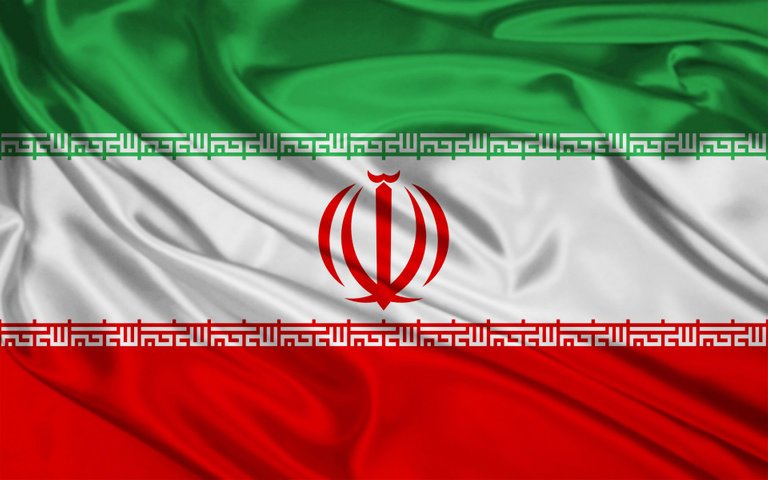
It’s been almost two months since the wave of protests that shook Iran. From the very start, the western governments and MSM quickly jumped to conclusions, talking about an Iranian spring and the end of the current Iranian administration. Other more truth-inclined journalists reported on this protests as what they were, mainly about economic issues.
A poll has come out in the last few months which provides a peek inside this country for those of us watching from afar. I would like to quickly go through this poll pointing out a few questions, their answers and what, in my opinion, they show. If you wish you can see the results in the link at the bottom of this article. The poll was conducted on 1,002 people with a margin of error of + 3.1%.
According to this poll, the economic situation is very bad (40.7%) or somewhat bad (28.2%) and is getting worse (58.4%). This is mostly due to domestic economic mismanagement and corruption (63.3%). Regarding the protests the people strongly agreed with those reasons regarding the economy: that the government is not doing enough to help the poor (43%); that the government in not doing enough to help farmers (44.5%); the government should not cut cash subsidies (69.2%); the government should not increase the price of gasoline (73.2%); the government should do more to keep the price of food products from increasing (81.3%); and that the government should do more to fight financial and bureaucratic corruption in Iran (85.2%). Interestingly enough 59.3% either somewhat disagreed or strongly disagreed when asked if the government should not be strict in enforcing Islamic laws. When asked about how the police handled the protests 66.3% of the people thought they did either very well (34.4%) or well (31.8%).
The poll then moved on to the JCPOA nuclear agreement with the P5+1 (US, UK, France, Germany, Russia and China). According to this 75.3% of the people think it is very important for Iran to develop a nuclear program. But this is a shrinking number: in december 2009, 87% thought it important. But now the numbers indicate that an increasing number of people think it is not very important or not important at all. It is interesting to see the approval rating of the agreement thought the years:

It is clear analyzing the numbers that less and less people approve of the agreement and more and more people are against it. In a subsequent question the reason for this becomes clear, 52.5% of the people has the opinion that Iran has not received most of the promised benefits and 60.3% believe that the US did not lift the sanctions it agreed to lift in the JCPOA (only 38.9% felt this way only in December 2016). Furthermore, 82.7% of the people think Iran-US relations have either not improved (82.7%) or have worsened (7.5%) and 86.4% are not confident the US will live up to its obligations toward the agreement (of that number 63.9% are not confident at all). Regarding the other countries in the P5+1, 60% of the people are either very confident or somewhat confident that they will live up to its obligations. 92.6% think that the US is preventing other countries to normalize relations with Iran and 69.2% feel that Donald Trump has a completely hostile policy towards Iran.
Other reason for the protests according to the western corporate media was the rejection of Iran’s foreign policy by their people. This is also disproved in this poll, only 14.8% of the people feel Iran should end it’s assistance to Assad and 84% think the syrian people should decide as to whether Assad should stay or go. The most divided opinion in this poll is regarding the Houthis in Yemen, while 46.7% think Iran should help them, 41.2% think Iran shouldn’t meddle in their affairs.
When asked about the single most important problems Iran is facing today are economically related issues: unemployment (40.1%); youth unemployment (9.4%); and inflation and high costs of living (12.5%). Only 0.3% thought the most important issue was lack of civil liberties. When asked about the amount of political freedom 56.2% thinks they have just the right amount and 30.4% too little. Lastly, when asked how much they think the government excercises over the people 17.6% thought it was too much, 17.9% too little and 57.7% about the right amount.
Now that we have gone through the results, let us see what they say. It is clear now that the main reason why the protests occured was economic issues, not social, especially unemployment. Not about the theocracy, or the ‘authoritarian despots’ ruling them and once again, the western corporate media lied and misrepresented the truth about an important event in a most delicate region of the globe. It is for things like these that the Iranian people have so little confidence in the US government, making them less and less supportive of cooperation with western powers. It is for these reasons that the Iranian people are growing weary of agreement such as the JCPOA. The US hurts every chance at diplomacy and then accuses others of not being diplomatic and not wanting to sit down at a table with them. Such carelessness leads only to either a complete diplomatic break up (which is unlikely given the US desires to have a puppet regime in Iran to destroy the Axis of Resistance) or worse a full out war. Considering that the US has a constant warmongering foreign policy which does not change regardless of who seats in the Oval Office the only way to prevent such a war is with diplomatic and pacific leaders at the other end, lets hope this stays that way.
Hi! I am a robot. I just upvoted you! I found similar content that readers might be interested in:
https://gonzalopezblog.wordpress.com/2018/02/27/on-the-iranian-protests/